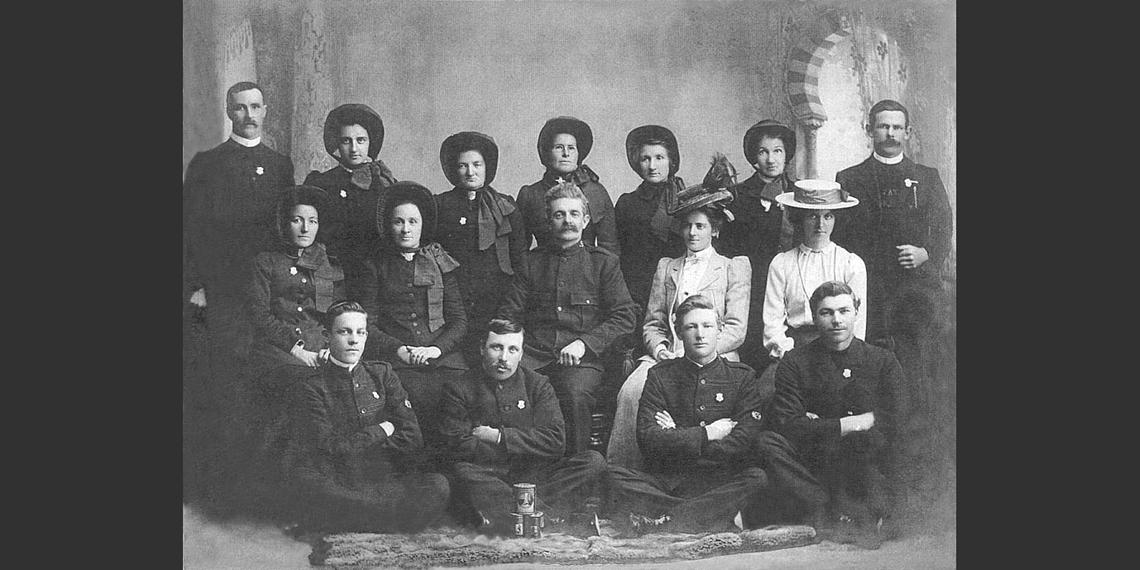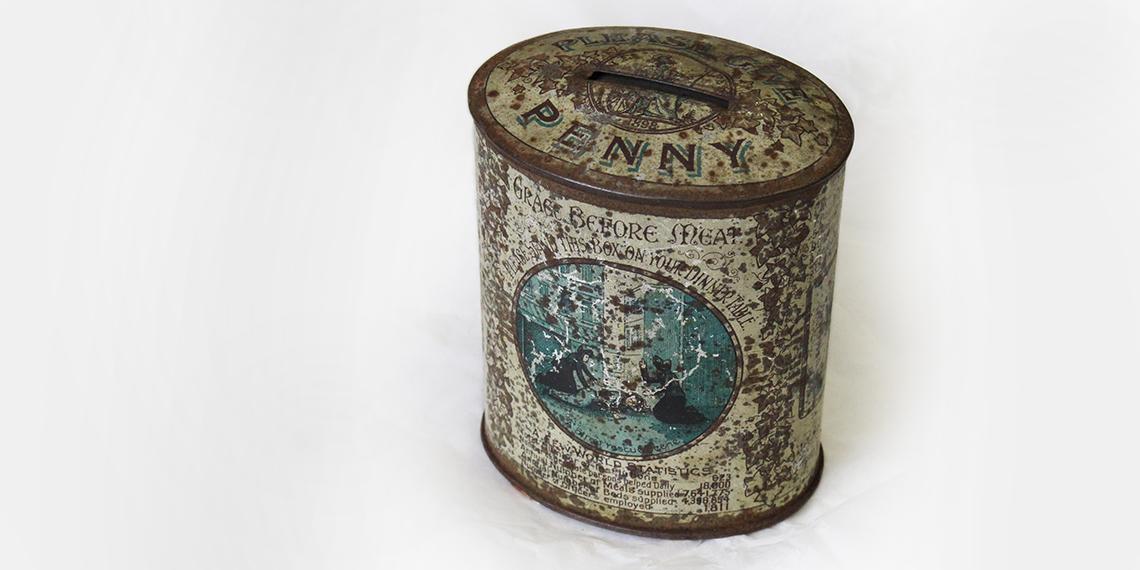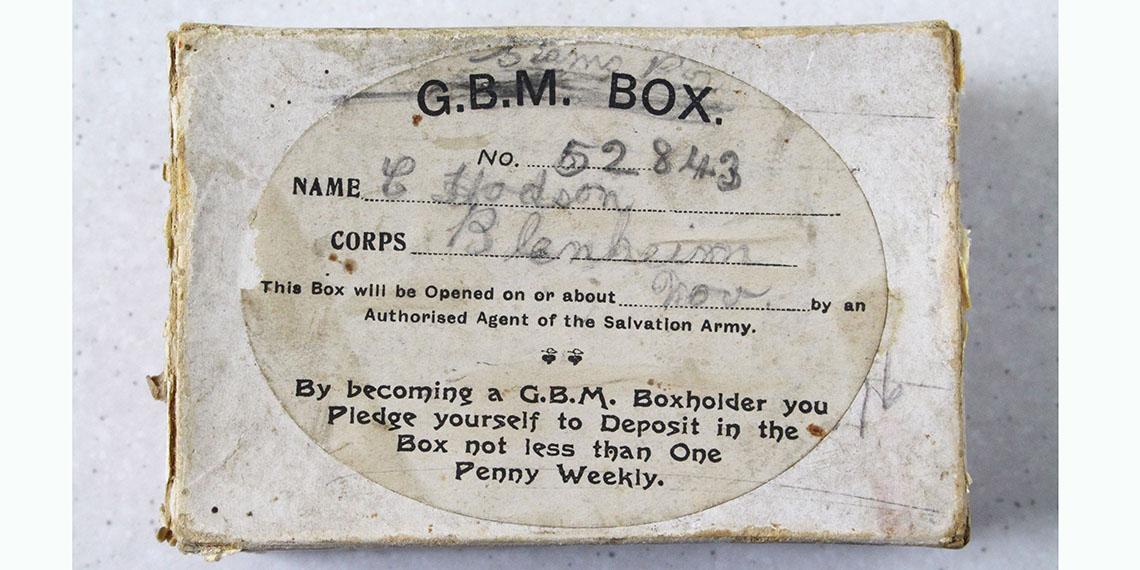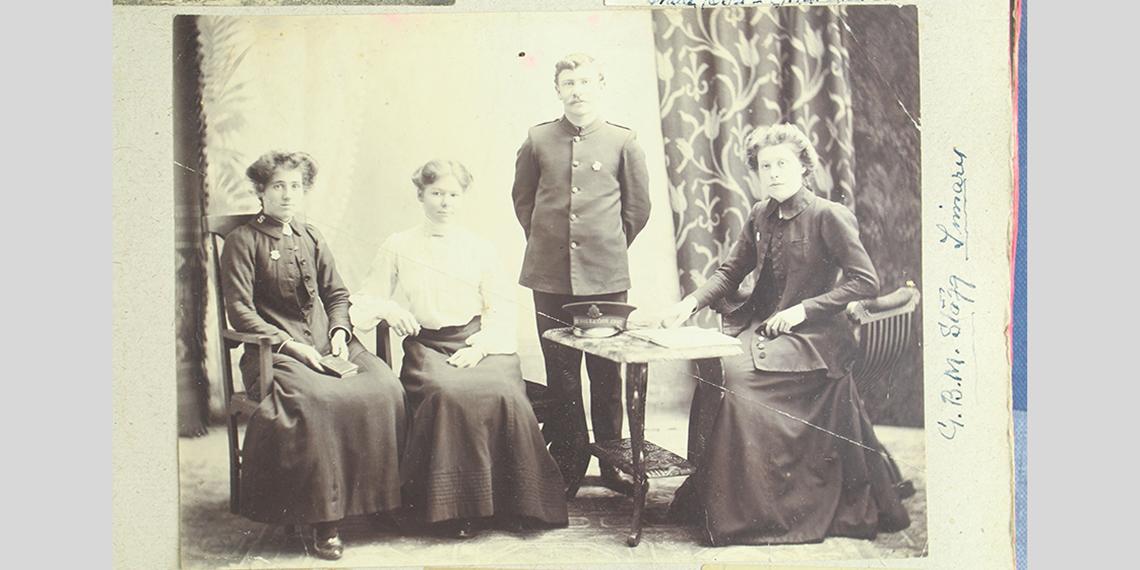You are here
Grace Before Meat




The Grace before Meat (GBM) scheme was initiated in Britain by General William Booth in 1893. Salvationists and Army friends were supplied with a specifically labelled box or tin where a coin offering could be placed at mealtimes. Funds raised from this scheme were used to assist the Salvation Army’s social services, such as the men’s prison gate homes and the women’s rescue homes. The GBM scheme was first mentioned in The New Zealand War Cry in 1895.
George Scott Railton in Chapter 22, of his book ‘General Booth’, published in 1912, wrote “This ‘Light Brigade’ is another invention of the General’s, partly foundered upon the Indian habit of taking a handful out of every new supply of food and laying it aside for the priests. The ‘Light Brigade’ consists of Soldiers and friends who place on their table a little box, into which all who like can drop a little coin by the way of thanksgiving to God and care for the poor before they eat. These are called ‘Grace-before-Meat’ Boxes.”

From The New Zealand War Cry of 30 August 1913, we learn more of the GBM scheme: “Its purpose was to solicit even the small coin to more especially meet the needs of that class who come under the designation of Lazarus. The poor can help the poor through this scheme; in fact, anyone can. It is worked in this way: Any friend or soldier who undertakes to contribute the humble sum of a penny per week will have loaned to them a neat little box which they can place on the dining table, and into which they put in at least one penny. Soldiers or Christian friends who can devote a little time are secured, appointed as agents, given proper authority to issue boxes and collect amounts contributed, every three months.”.
In the 1890s and early 1900s, The New Zealand War Cry regularly reported on the GBM scheme keeping readers informed of the names of corps collectors, visits to corps from the GBM national coordinator and how the monies collected were used.
Encouragement was the ‘order of the day’ with practical tips given for collecting and successful endeavours were highlighted, such as a report from Glenorchy Corps, in January 1897, requiring more GBM boxes. In 1895 when Captain Hayman was appointed to coordinate the GBM scheme, the War Cry of 6th April reported, “Captain Hayman has got GBM on the brain - and heart, and looks as though he’ll tackle everybody present.”
During this period, a significant Grace before Meat network was established and coordinated by The Salvation Army throughout New Zealand and at any one time, thousands of boxes were in distribution.

